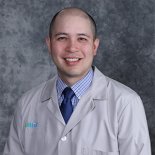Guest: Candace T. Westgate, DO, MPH, FACOG
Guest: Ethan D. Schram, MD, FACP
Early detection of cancer is essential to reducing the significant burdens associated with it. When cancer is detected at earlier stages, treatments can be initiated sooner, resulting in improved outcomes, reduced morbidity and mortality, and better quality of life. While the implementation of current screening guidelines has resulted in an overall reduction in cancer deaths, only 25 percent of cancers are diagnosed using traditional screening modalities, leaving much room for improvement. Blood-based multi-cancer early detection, or MCED, tests that can screen from four to greater than 50 types of cancers have been developed to complement the population-based screening of asymptomatic individuals. At the spring 2023 American Association for Cancer Research, also known as AACR, American Society of Clinical Oncology, or ASCO, and National Comprehensive Cancer Network, orNCCN, annual conferences, a multitude of data was presented on MCEDs, including real-world data, clinical trial data, novel MCEDs in development, MCED accuracy, and the inherent health equity challenges that their implementation will face. This educational activity has two parts. Dr. Candace Westgate delivers an MCED Primer designed to build primary care clinicians’ knowledge about the science of MCEDs and how to implement their use in primary care practice, followed by chapterized discussions between …






